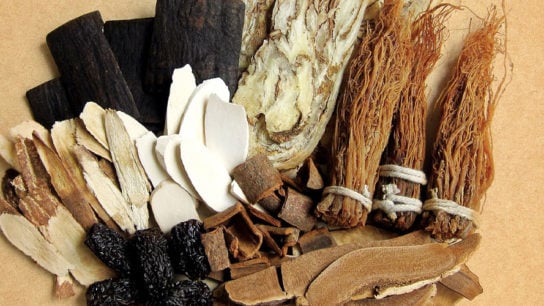Asia’s slow fashion movement continues to bring forth a transformative shift in consumer behaviour. Begin your journey to sustainable living by making essential changes, starting with your wardrobe.
From the rise of eco-friendly designer labels, to normalising upcycled fashion and re-swap stores, the momentous uptake of Asia’s slow fashion movement is heralded as pivotal in reforming consumer habits and attitudes towards green purchasing. The fast fashion industry accounts for approximately 10% of global carbon emissions, far exceeding the international flight and shipping sectors.
Fleeting fashion trends and demand for accessibility have further fueled the growth of this industry, straining the environment, and our futures.
While eco-conscious labels have gained more ground over the past years, the hurdles set by fast fashion will continue to overtake sustainability efforts, unless governments, businesses, and consumers take accountability and halt these harmful practices.

As the global population builds its awareness of sustainability issues such as climate change and environmental conservation, a greater inclination has been shown to boycott irresponsible companies with a substantial carbon footprint and unethical practices. To make an impact, one needs to do more than call out brands for greenwashing, by embracing eco-friendly shopping habits, reviving and reusing old clothes, or even opting for pre-loved pieces over new purchases.
Read our slow fashion guide on ways you can support the cause while reviving your wardrobe.

What is Slow Fashion?
Slow fashion began as a global movement devoted to fostering circularity within our supply chains by advocating an intentional, sustainable, and gentle approach towards the industry, targeting manufacturers, retailers, and consumers. It invites individuals to become more conscious and aware of their footprints when consuming fashion, as well as to take greater responsibility for the design, production, usage, and wastage of each and every piece.
One of the movement’s key targets is to initiate a pivotal shift within supply chains alongside purchasing habits, with a bigger focus on quality over quantity. This includes respecting the environment by avoiding harmful chemicals and unsustainable textiles during production and ensuring zero or low waste operations. Additionally, slow fashion advocates fair wages, humane treatment, and working conditions for all those involved throughout the supply chain. Transparency and honesty play a significant part in facilitating and ensuring that companies operate consciously.

Smart Shopping
Fast fashion and greenwashing have made consumers more conscious of their purchasing decisions, leading them to practise smart shopping.
Consumers can take accountability through simple actionable- research brands before making a purchase with them. Dig deeper into a company’s practices to avoid falling for their greenwashing, and look for verified certifications such as the Global Organic Textile Standard (GOTS), B Corporation, PETA Approved Vegan, and others.

@Global Organic Textile Standard – GOTS
In addition, only buy new items when necessary, instead of trend-chasing, invest in timeless, quality pieces.

Curating a Capsule Wardrobe
An overflowing wardrobe speaks volumes towards a person’s shopping habits, and in many cases, overconsumption. Decluttering can better align you with your wants and actual needs. This does not simply mean throwing away over-used or unworn clothing- when we clear out our space, it is crucial to be mindful, separating and allocating fashion pieces for repurposing or recycling.
Building a capsule wardrobe is the next step in revamping your closet with essential staples, for long-lasting and conscious wear. It is also a great way to take a step back to reflect on your consumption habits, and start investing in quality over quantity. Curate a colour palette for your wardrobe, and ensure it consists of fundamental fashion pieces to create versatility, while opting for sustainably and ethically made textiles.

Be Mindful and Thrifty
Most high-end brands launch at least four collections annually, accumulating a mass of fashion waste each year. While cutting down on shopping is the best way to go, embracing a more thrifty approach to fashion will also cause less harm to our planet. Thrift and second-hand shops have gained a significant following over the past years.
Vestiaire Collective, the leading marketplace for pre-owned designer labels, reported an increase in online purchases and re-sales within the Asian market, highlighting a paramount shift in consumer attitude across the region.
Individuals can support the cause by shopping online from APAC’s top thrifting marketplaces, such as Singaporean secondhand platform, Carousell, and Blue Spinach, Australia’s premium resale store, to source and sell preloved essentials to build an eco-conscious wardrobe.

Repair, Repurpose, and Re-Sell
Up to 92 million tonnes of a total of 100 billion textiles produced end up in landfills annually. The key to extending the lifeline of a fashion piece is by practising the three “Rs,” repairing old and tattered clothing, repurposing the fashion pieces into new and dynamic motifs, and re-selling them.
The goal of this is to revive your fashion pieces while refraining from simply sending them to the landfill. Moreover, one can also recycle textiles in an ecological manner, taking into account the fabrics, chemicals, and other materials used in their manufacturing. Donating preloved clothes in good condition is another way to give your purchases a second life.

Support Local Sustainable Brands
Shopping locally is another great way to initiate your slow fashion journey. Most local brands do not require cross-border transportation, and are more likely to be involved in community initiatives, transparent and honest operations, as well as cleaner and conscious production.
Asia is catching up with European nations, and has witnessed a notable increase in locally grown sustainable fashion labels. APAC’s rising sustainable ecosystem is committed to making more green options available, from eco-friendly labels and upcycled fashion designers, to second-hand stores, and many more.
Zerrin is a sustainable fashion hub based in Singapore that features an all-rounded curation of thoughtful and eco-conscious labels to shop from, along with an inspiring media platform dedicated to educating and informing local consumers to become more aware and considerate of the environment to preserve it for future generations.

The fast fashion industry must make that paramount shift immediately, to build a conscious, ethical, and more sustainable future for all.
Featured Banner Image: @rouso.shop
Related Articles
7 Essential Sustainable Fashion Labels in APAC to Know
Christina Dean: The Woman Leading a Global Movement in Fashion Sustainability





